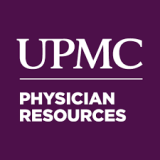Behavioral Addictions

This course will provide clinicians with the latest clinical and empirical evidence that addresses behavioral addictions, including phenomenology, epidemiology, comorbidity, neurobiologic mechanisms, genetic contributions, treatment response, and prevention.
Category
Format
- Self-study / Enduring
Credits
- 15.00 AMA PRA Category 1 Credit™
- 15.00 ANCC
Prescribing Opioids, Providing Naloxone, and Preventing Drug Diversion: The West Virginia Requirement

Opioid analgesic medications can bring substantial relief to patients suffering from pain.
Category
- Drug Diversion
- State Mandated Training
- Prescribing: Opioid(s)
- Naloxone
Format
- Self-study / Enduring
Credits
- 3.00 AMA PRA Category 1 Credit™
- 3.00 ANCC
Changing the Conversation about Pain

This course has been developed for physicians and all other healthcare professionals. This educational module qualifies as the web-based pain management training offered by the Oregon Pain Management Commission.
Category
- State Mandated Training
Format
- Self-study / Enduring
Credits
- 1.50 AMA PRA Category 1 Credit™
- 1.50 ANCC
Tick-Borne Diseases

Vector-borne diseases are spread by arthropods such as ticks, mosquitoes, or fleas. In the U.S., ticks are the number one vector responsible for transmission to humans. These tickborne diseases are challenging to diagnose as they often have non-specific symptoms.
Category
Format
- Self-study / Enduring
Credits
- 1.00 AMA PRA Category 1 Credit™
- 1.00 ANCC
2023 Lyme Disease Update for Physicians

In this CME, Andrew Nowalk, MD, PhD, discusses how to describe the endemic nature of Lyme disease in western PA, review stage-based diagnostic and treatment strategies, and highlight tips and tricks for Lyme management.
Category
Format
- Self-study / Enduring
Credits
- 1.00 AMA PRA Category 1 Credit™
- 1.00 ANCC
Post-Traumatic Stress Disorder

Primary care practitioners treat many civilians and veterans of all ages who exhibit symptoms of PTSD, but many lack the necessary knowledge to identify PTSD and perform differential diagnosis.
Category
- Post-traumatic Stress Disorder (PTSD)
- Pharmacology
Format
- Self-study / Enduring
Credits
- 15.00 AMA PRA Category 1 Credit™
- 15.00 ANCC
- 15.00 Association of Social Work Boards (ASWB)
Mental Health Issues Common to Veterans and Their Families

The effects of deployment to military combat on the individual and the family system are wide-reaching and can be severe. Military personnel may confront numerous potentially traumatizing experiences, including military-specific events and those experienced by civilians.
Category
Format
- Self-study / Enduring
Credits
- 2.00 AMA PRA Category 1 Credit™
- 2.00 ANCC
- 2.00 Association of Social Work Boards (ASWB)
HIV/AIDS: Epidemic Update

Since the discovery of HIV, scientists have made major inroads in understanding modes of transmission, infectivity, and pathogenicity.
Category
- Infectious Diseases
Format
- Self-study / Enduring
Credits
- 5.00 AMA PRA Category 1 Credit™
- 5.00 ANCC
- 5.00 Association of Social Work Boards (ASWB)
Opioid Safety: Balancing Benefits and Risks

Opioid analgesics are approved by the FDA for the treatment of moderate or severe pain. However, individual patients differ greatly in clinical response to different opioid analgesics, and patient populations show widely variable response to the same opioid and dose.
Category
Format
- Self-study / Enduring
Credits
- 5.00 AMA PRA Category 1 Credit™
- 5.00 ANCC
Promoting the Health of Gender and Sexual Minorities

The gender and sexual minority (GSM) population is a diverse group that can be defined as a subculture. It includes homosexual men, lesbian women, bisexual persons, transgender individuals, and those questioning their sexual identity, among others.
Category
Format
- Self-study / Enduring
Credits
- 5.00 AMA PRA Category 1 Credit™
- 5.00 ANCC

 Facebook
Facebook Twitter
Twitter LinkedIn
LinkedIn Forward
Forward